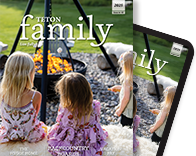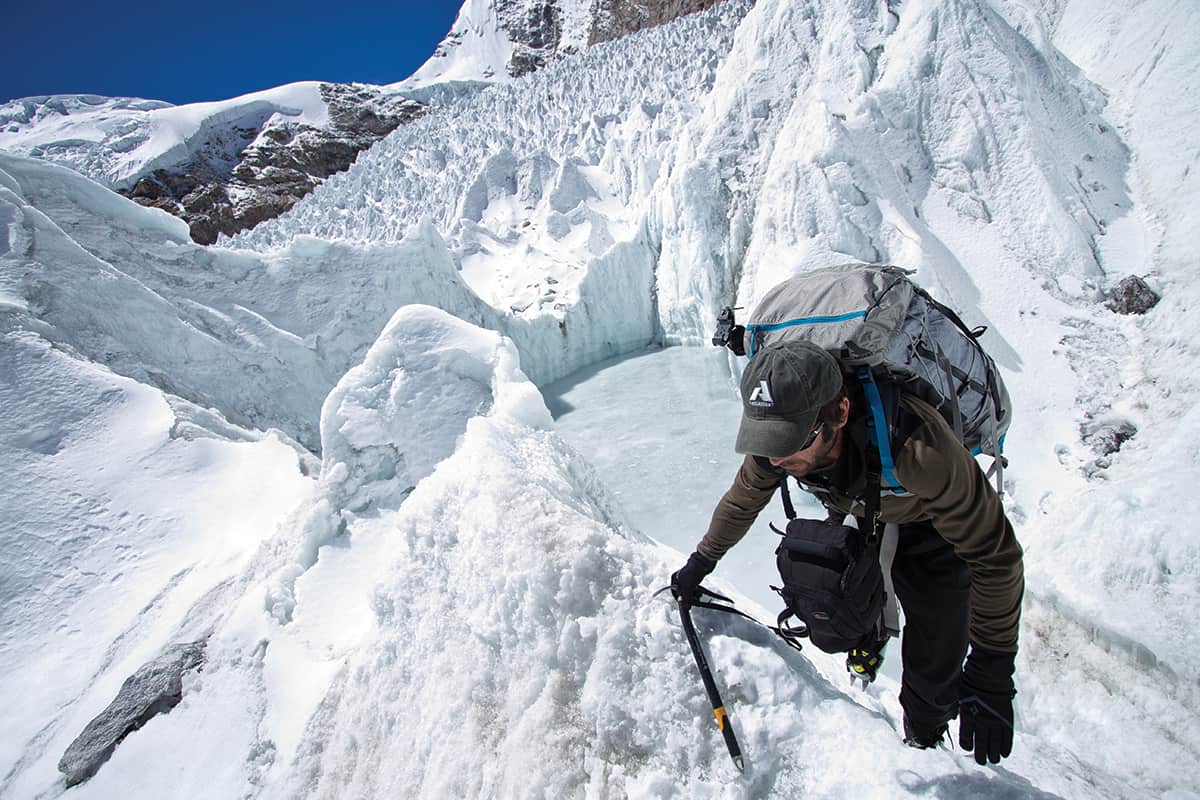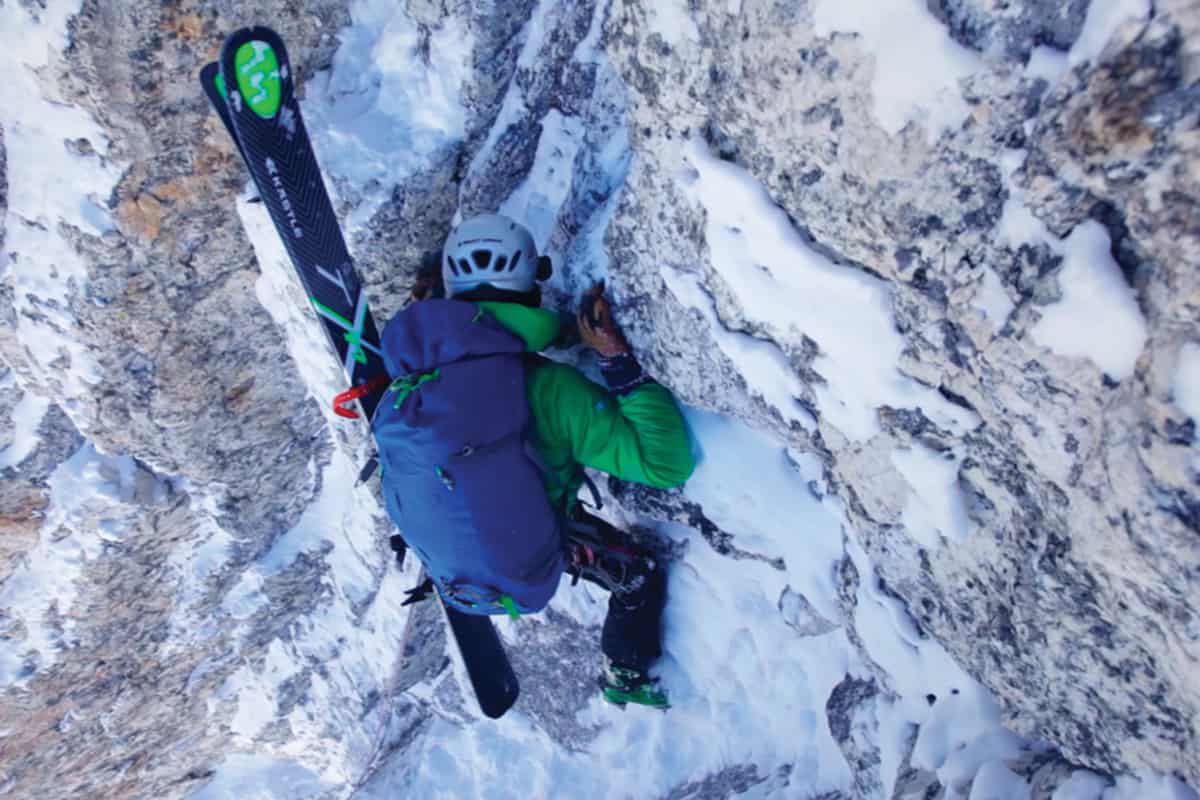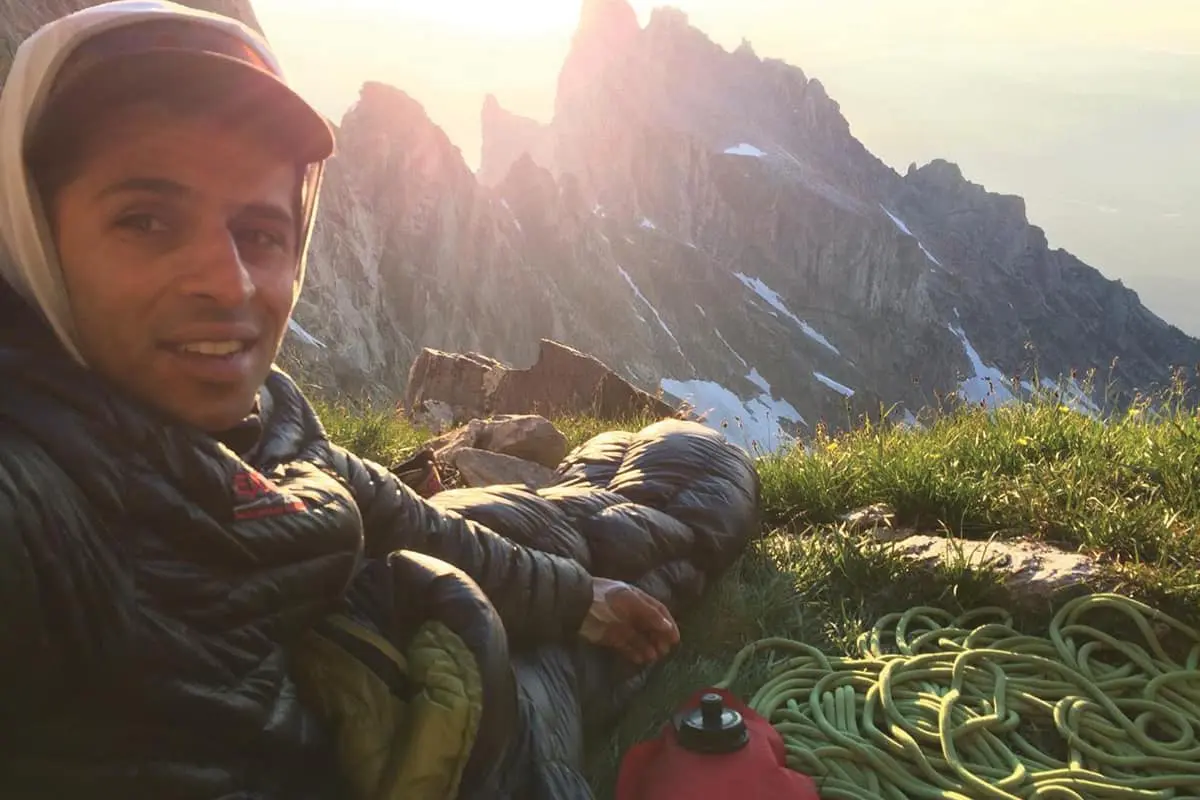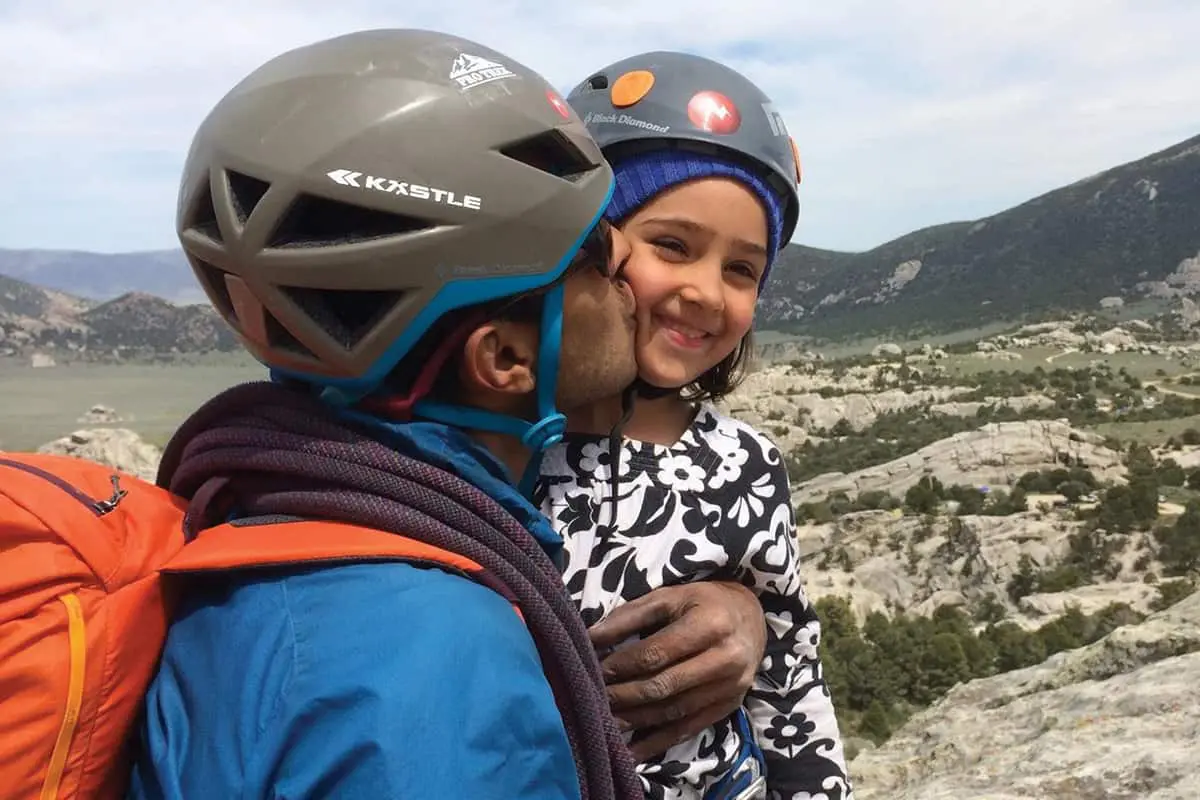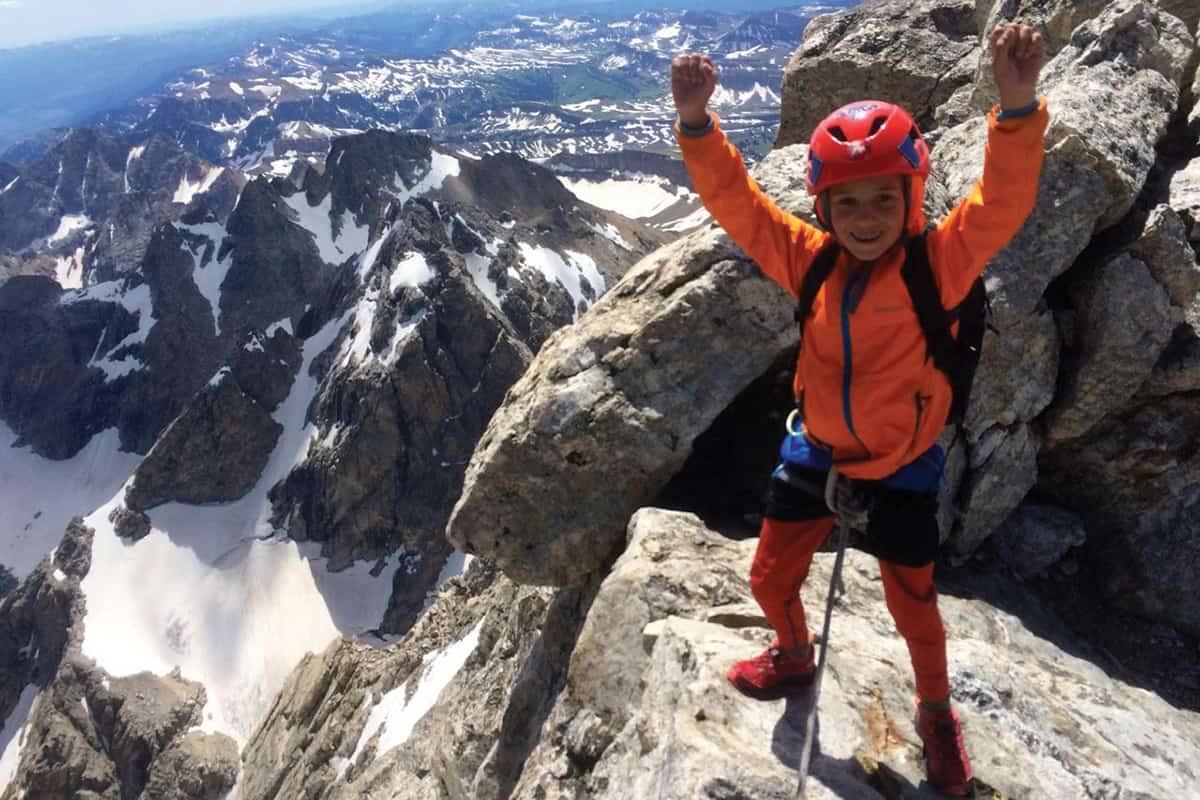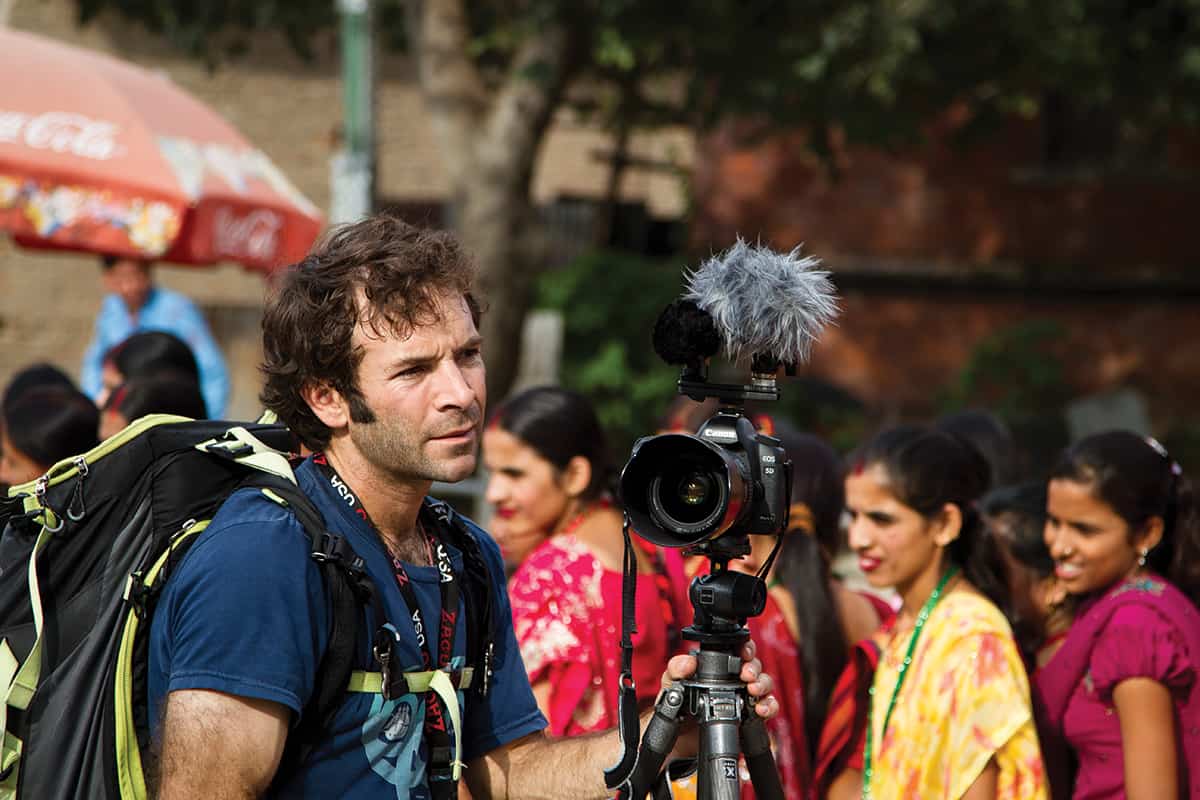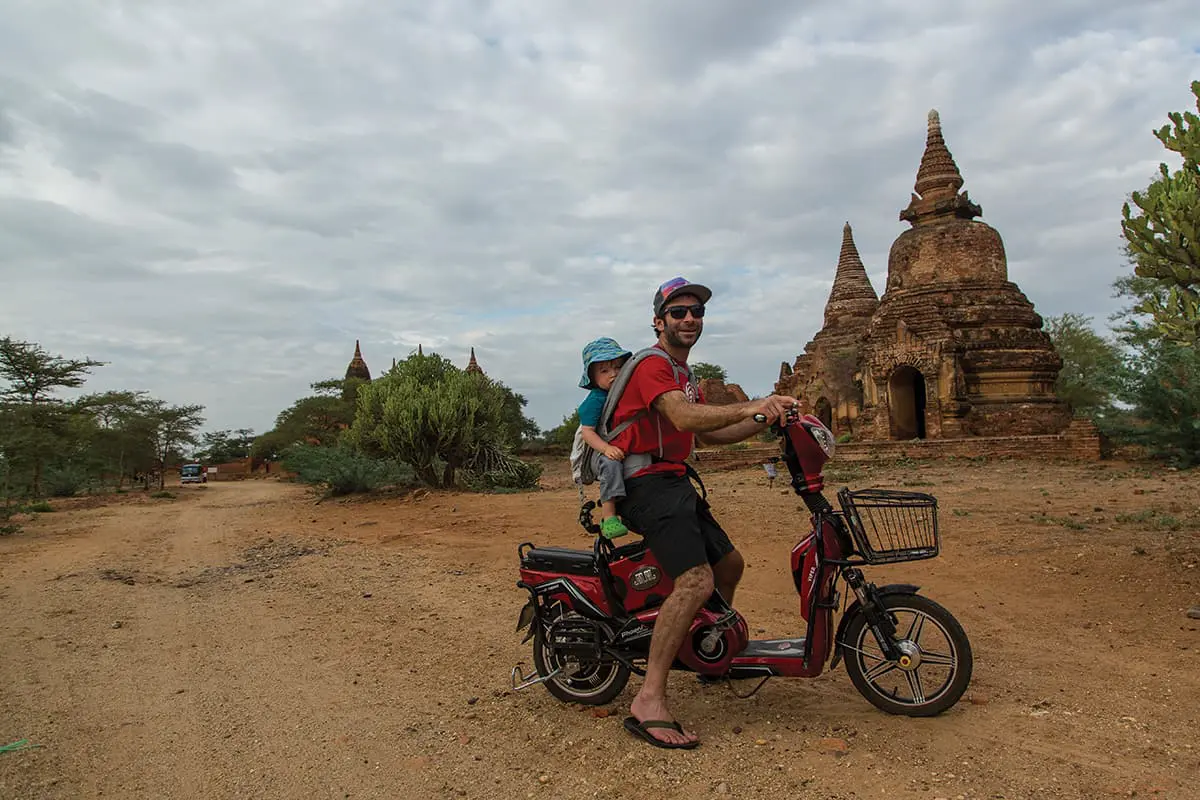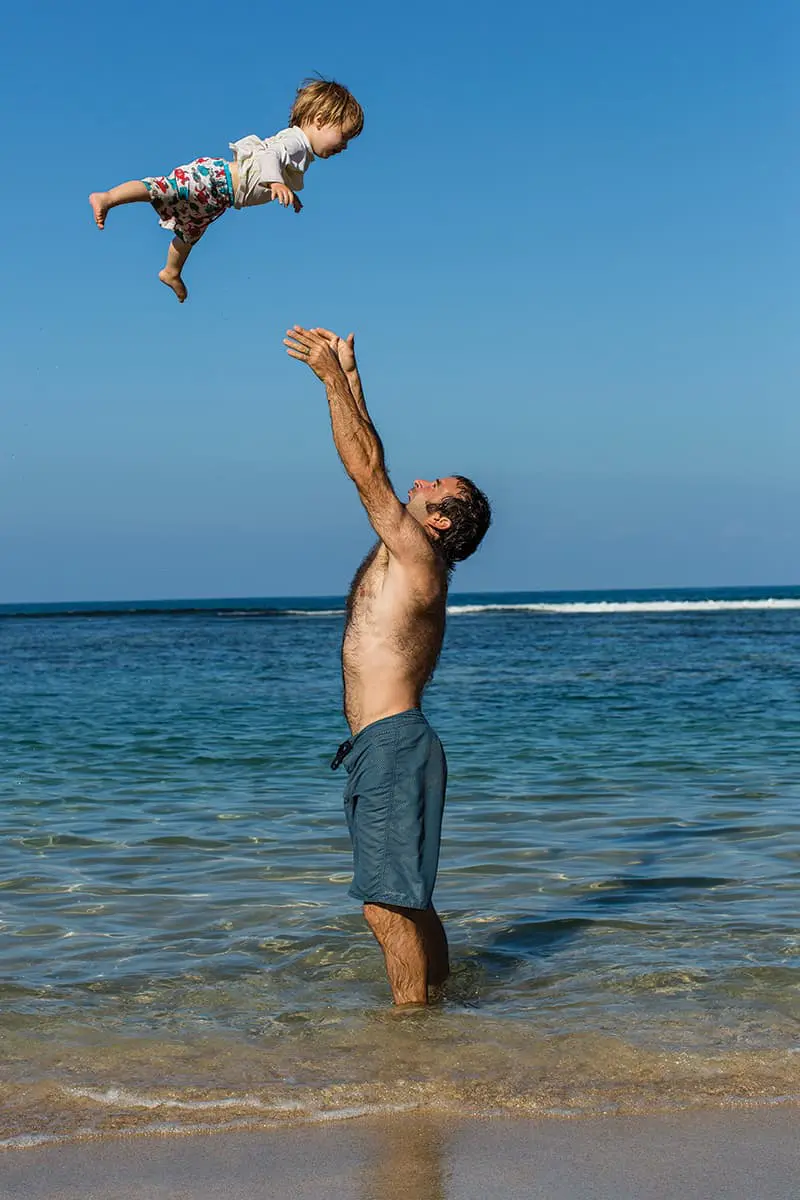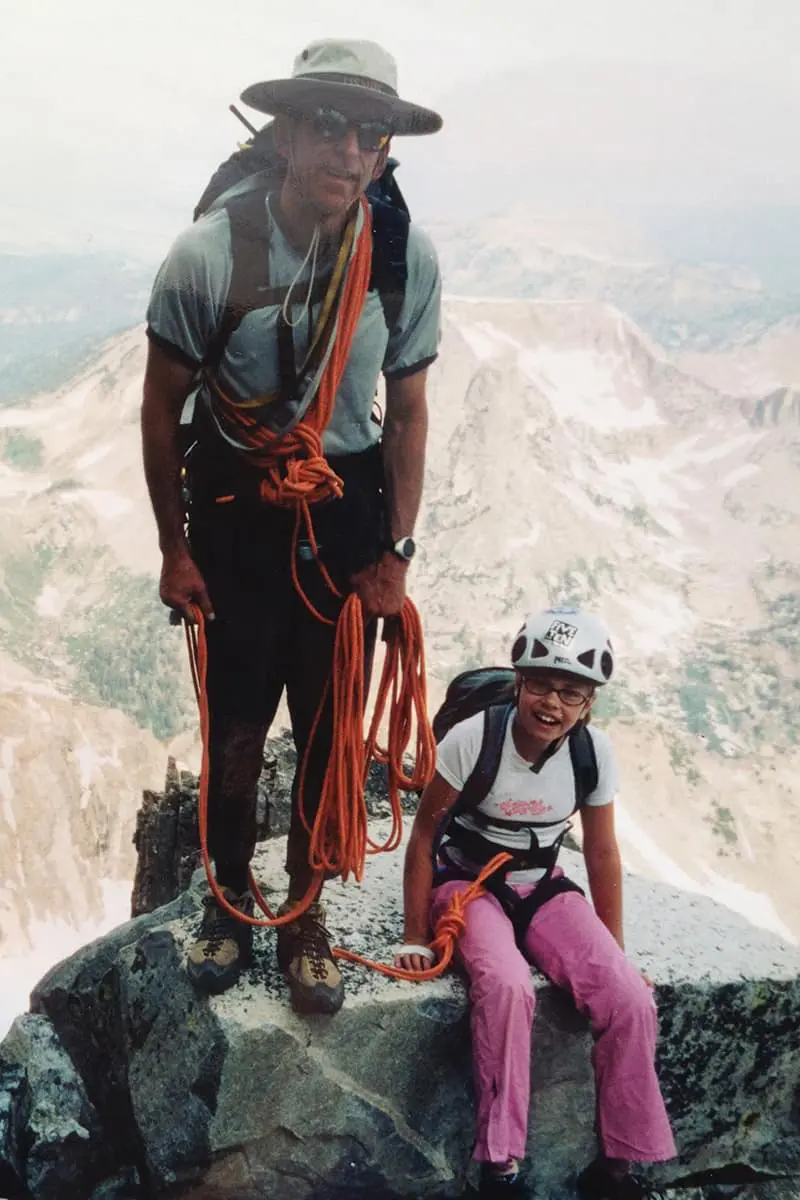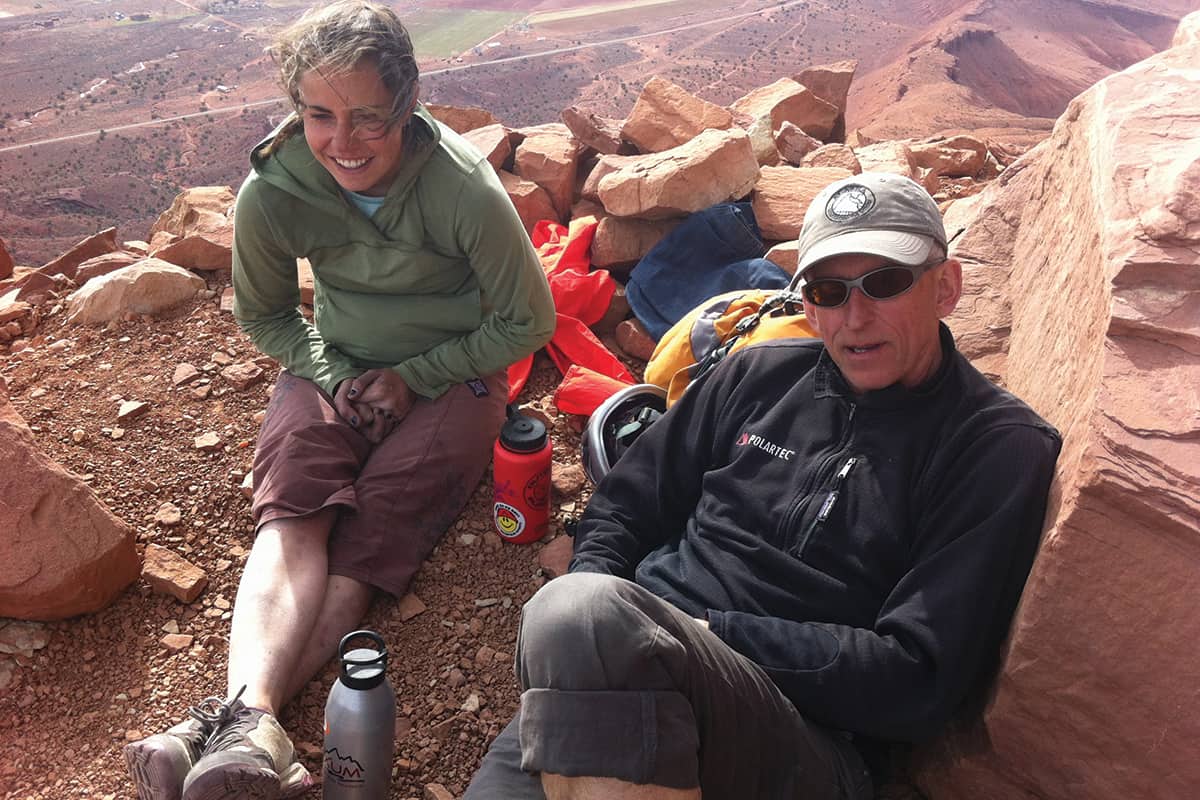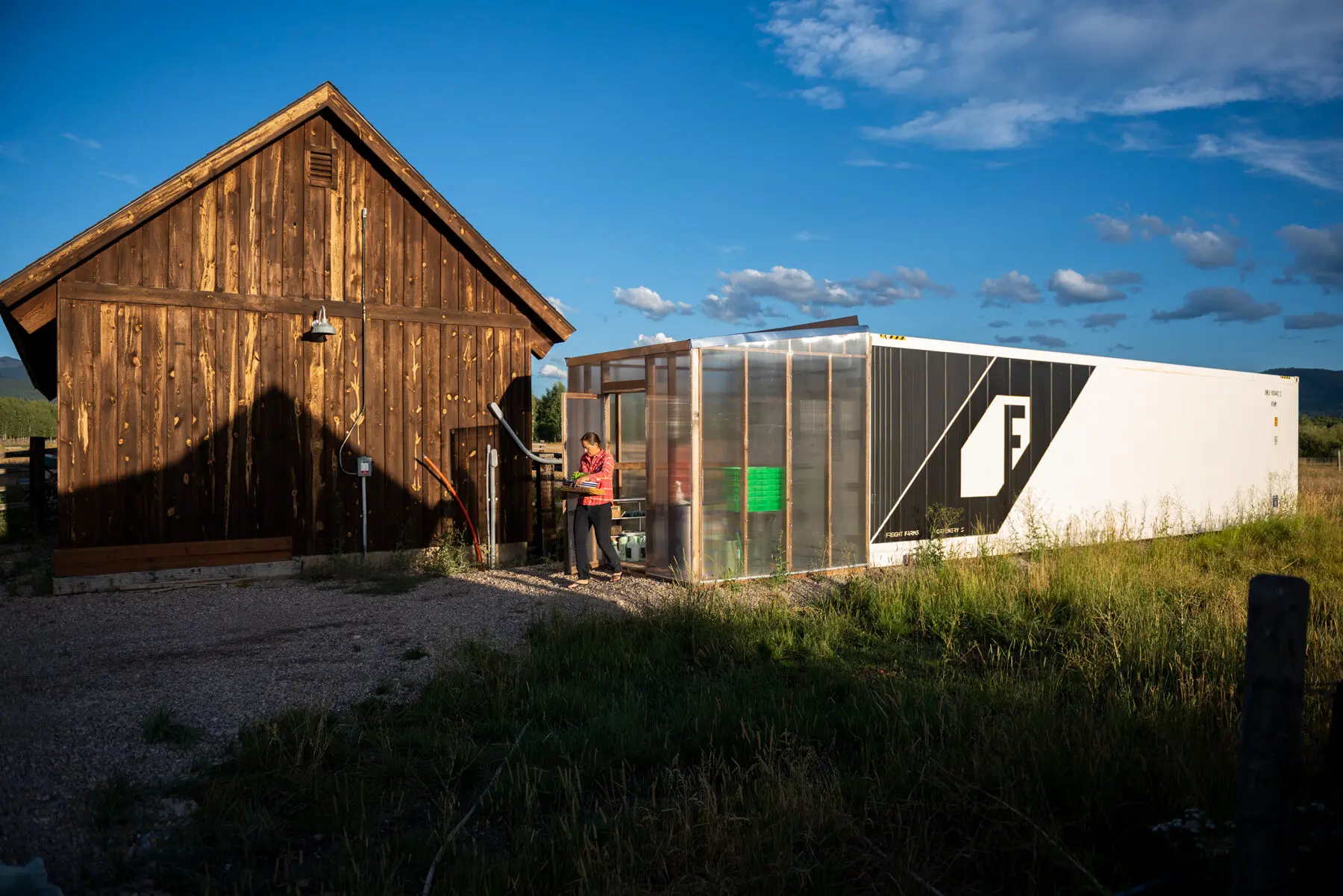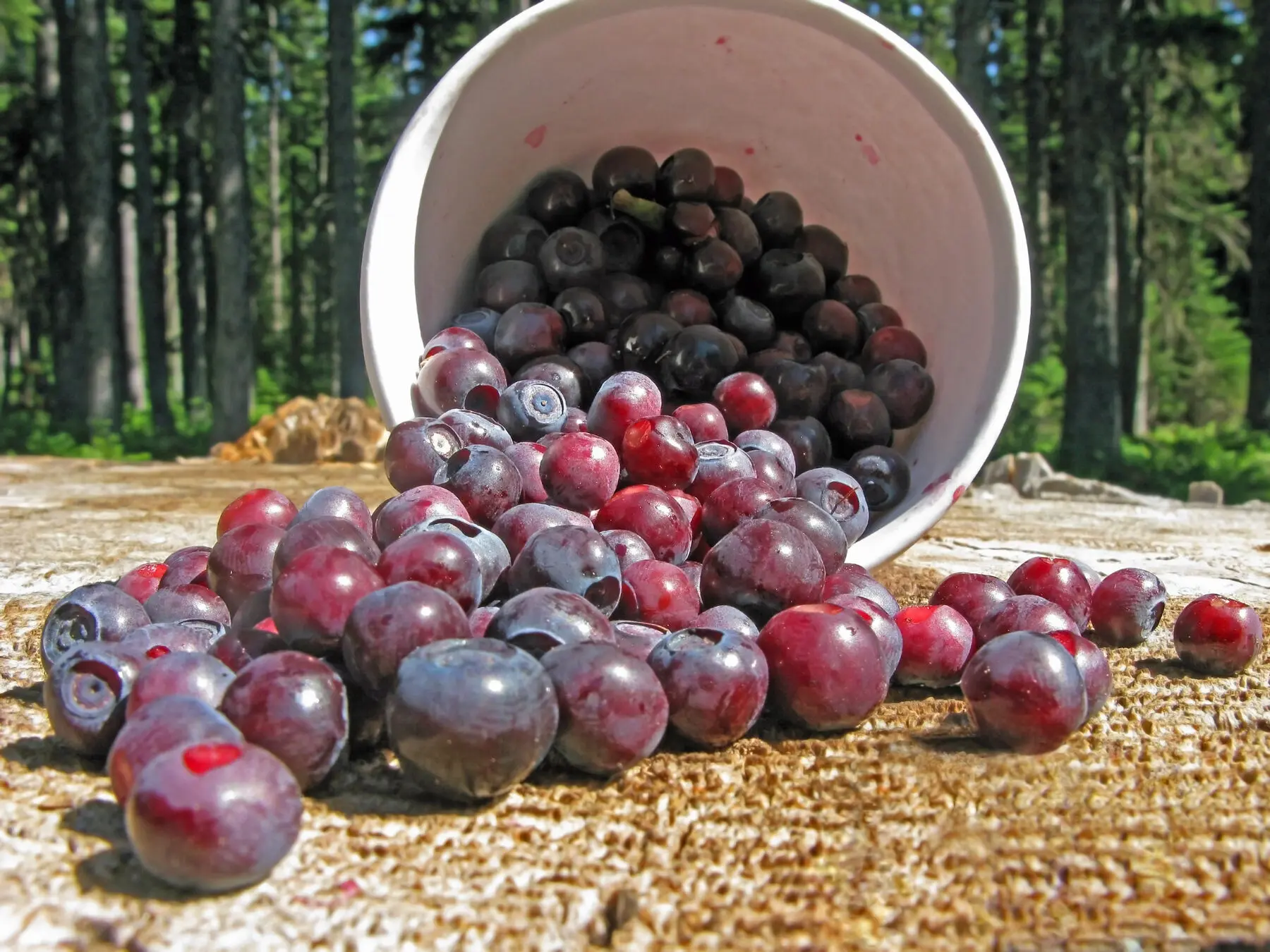By Christian Santelices
–
Trekking through the jungles of Myanmar; dangling from a cable below a helicopter; guiding professional skiers down the Grand Teton; exploring slot canyons with U.S. Naval Academy Midshipmen—these are just a few of the predicaments a group of Teton dads has faced. What do they think about in these situations? Do they second-guess their decisions? Do their kids pop into their heads?
I know what happens to me, but I wanted to get the lowdown from others.
Adventure jobs—like mountain guiding, technical rescue, and adventure filmmaking—are relatively new professions in the United States. Only during the last few decades have mountain guides and adventure photographers been able to make a full-time living. On most days, working in the adventure industry is not like a job at all. We get to travel and do what we love on a daily basis. But for dads, the rewards definitely come with trade-offs, and there are only a handful with the skills and dedication to raise a family alongside their art.
The Crux
I am a full-time mountain guide, avalanche awareness instructor, and leadership development trainer. My year’s work involves things like trekking, kayaking, and mountaineering in Patagonia, ski mountaineering in the Italian Alps, leadership training for the U.S. Naval Academy in southern Utah, and education development in Ethiopia. In 2013, I was away from home for a total of six months. At one point my son, Nico, then four years old, asked my wife, “Does Dad live here anymore?” I love my job and my family, but sometimes I find it tough to combine the two in a way where everyone’s fulfilled.
Mark Fisher, owner of Fisher Creative, and his partner, Eric Daft, produce eye-popping cinematic creations from adventures around the globe. Their current masterpiece, Myanmar: Bridges to Change, chronicles their 2013 expedition to Gamlang Razi—the disputed highest peak in Southeast Asia—led by Teton Valley local Andy Tyson, who died in a plane crash in April.
“The biggest challenge is balancing the fact that I love what I do with being a dad and family guy,” Fisher says. Balance for him involves finding stimulating work that also pays the bills. And since the local competition is fierce, Fisher must sometimes follow the storms (and the powder) to Alaska or even further.
Zahan Billimoria, a head guide for Exum Mountain Guides and Teton Gravity Research, excels at leading professional skiers and adventure-seekers in high-consequence terrain in the Tetons. Billimoria says he’s very selective about the professional time he spends in the mountains, especially during the summer. “I can’t imagine the scenario of regretting the [amount of] time I spend with my kids,” Billimoria says.
Thankfully for Fisher, Billimoria, and me, through many years of dedicated cultivation, we are finally at a point where we can pick and choose our work.
Reward Trumps Risk
Calculating a job opportunity often involves the following: 1) Who will I be guiding or working with? Is it someone I enjoy spending time with, who can further my career? Is it someone I trust? 2) How much money will I make? Is it just enough to pay the bills, or will this gig allow me more flextime with my family? 3) Is it a mind-blowing location? Will I use my technical skills? 4) What’s the risk factor? How difficult will risk be to manage?
Risk is defined as the potential of losing something of value (such as physical health, social status, emotional well-being, or financial wealth). And daily risk is something that we all deal with. For most people, the riskiest part of their job is driving to and from work. In adventure-industry professions, we make decisions based on an understanding of the dichotomy between risk and reward.
“There’s a gap between what is known about the experience we wish to have versus the one we will actually have,” says Billimoria when talking about calculating risk. “That gap is called adventure. That gap is unknowable and what brings us to the mountains.” The best and most calculated mountain practitioners are able to reap the rewards of the mountains in the process of the endeavor, knowing that success is not always measured in summits.
Renny Jackson, former lead climbing ranger for the Jenny Lake Rangers in Grand Teton National Park and the author of A Climber’s Guide to the Teton Range, was awarded a Medal of Valor for his rescue work over his thirty-year career. For Jackson—whose job involved picking up the pieces of other people’s adventures gone wrong—witnessing the aftermath takes its toll. “You try not to bring it home to your family. It’s intrusive to what you value in your life and to what you hold dear,” he says.
Jane, Jackson’s daughter, knew her parents’ address books were full of “ghosts” of friends they had collectively lost to the mountains, but she didn’t fully understand the risks of her dad’s job until she became a climber herself. Now, she says, “I worry about my dad all the time.” (As I was interviewing Jane, Jackson was embarking on an expedition to attempt an unclimbed peak in the Himalayas.)
A big part of Fisher’s risk assessment involves his family’s experiences while he’s gone. “Almost every time I leave, there’s a mishap,” he says. While away on past assignments, his son had surgery, his daughter was hospitalized with RSV (respiratory syncytial virus), and three friends died in a plane crash. “When [bad] things happen while you’re away, you’re helpless. What can you do?” he asks.
Job No. 1
While outwardly these men are defined by their careers, they reap their greatest satisfaction from being fathers. One of the most fulfilling moments for Jackson was seeing his daughter’s “switch flip” when she discovered her passion for climbing. “It happened on Denali,” Jackson says. “I invited Jane to go on a park service patrol, and we were hanging out at the 14,000-foot camp with a bunch of my friends. … She saw what unique, passionate, special people they were.” And that was all it took.
Jane describes it differently: “I was going through a rough time and had taken time off from college to figure things out. On Denali, I had success every day—skiing uphill to the next camp and then eventually reaching the summit.” She says the feeling of those daily successes contributed to her desire to climb full-time. She now works part-time for Exum Mountain Guides and as a climbing steward in Yosemite National Park.
Lessons from the mountains run through the experiences of all adventure dads. But the one that sticks the most is the importance of working hard and finding your life’s passion. Fisher explains, “I want my kids to have an appreciation for someone who’s willing to take a risk and follow their dreams. It’s an important life lesson.” Billimoria says that showing your kids the value of “showing up for other people” teaches that we all need to be willing to work hard for others. He also instills the importance of “being 100 percent present.” And Jackson adds, “If you can experience that switch [when they find their passion], that’s as good as it gets.”
Survival tips for traveling parents
—
(Disclaimer: all experiences may differ.)
Twenty-four hours before and after a trip kids come unglued. They deal with the stress of you leaving by treating you like dirt. Handle it with patience and compassion.
Work hard to relearn family routines. When you return, you are intruding on their daily schedules. Spend some extra time getting back into their rhythm. Don’t be another kid for your spouse.
Use Skype or FaceTime. This can be tricky, especially where Wi-Fi is poor. Be sure your connection is solid before you Skype, or simply resort to a phone call instead.
Don’t call too much. Sometimes phone calls makes your kids miss you more, causing a harder time for your spouse. How much is too much? Once a week is a good reference point.
Single-Parent Syndrome. One of the worst parts of calling home is hearing about your spouse’s single-parent challenges. Listen attentively, commiserate, and get your butt home.
Devote the last and first twenty-four hours before and after a trip to your family. Get your packing and last-minute details dialed early so you can enjoy quality family time. When you return, leave your bags in the car (except for the presents) and dive back into the family.
